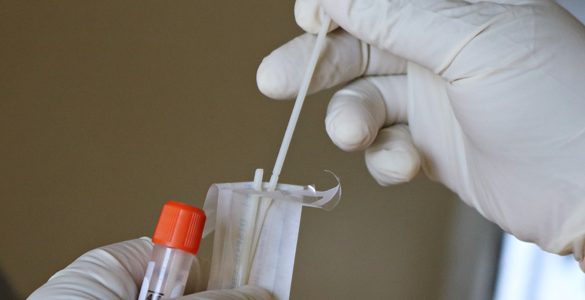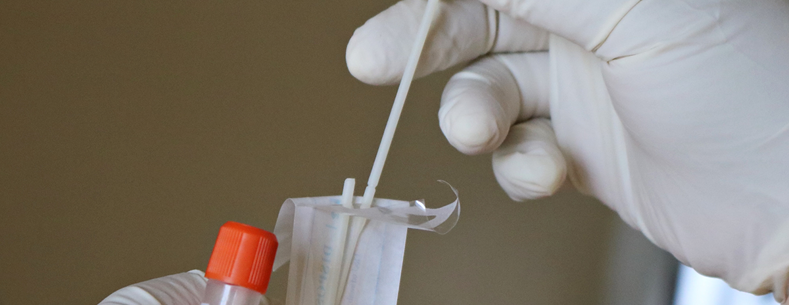Members of the Senedd are dealing with enquiries from their constituents on NHS Wales’ Test, Trace, Protect service.
This article intends to help Members and their staff direct constituents to information published by the Welsh Government on how Test, Trace, Protect works in Wales. It includes information on what happens if you test positive for coronavirus, or have had close contact with someone who has tested positive.
About Test, Trace, Protect
Test, Trace, Protect is a fundamental part of the Welsh Government’s strategy to control the spread of coronavirus and was launched across Wales on 1 June 2020.
Testing and contact tracing is an essential part of the Welsh Government’s approach to protect against the transmission of the virus, and will need to be maintained at a significant level, potentially for the next year or until a vaccine is found.
The Welsh Government’s Test, Trace, Protect strategy sets out its approach to:
- testing people with symptoms in the community;
- tracing those they’ve come into close contact with; and
- protecting others by self-isolating.
The Welsh Government’s infographic Test, Trace, Protect sets out what you need to know.
Testing
Since 18 May 2020, anyone in Wales who has coronavirus symptoms can be tested.
The Welsh Government’s Test, Trace, Protect strategy relies on the public recognising the symptoms of coronavirus and seeking a test. In turn, testing must be accessible quickly and easily, so that contact tracing can be deployed effectively to control transmission of the disease.
People are advised to get tested for coronavirus if they develop symptoms of cough, fever or change in sense of taste or smell. The person experiencing symptoms and their household must self-isolate while waiting for the test result.
Anyone experiencing coronavirus symptoms can apply for a test online or by calling the national 119 phone service.
Anyone who tests positive for coronavirus, and their close contacts, need to self-isolate to prevent the spread of coronavirus and isolate new infections. This will break the chain of transmission. The Welsh Government’s self-isolation guidance states that even if the symptoms are mild, people testing positive must not leave their home:
- those who test positive for coronavirus must self-isolate for 10 days from when their symptoms started; and
- other household members, including those who do not have any symptoms, must stay at home and not leave the house for 14 days.
The Welsh Government’s Test, Trace, Protect strategy recognises that;
The public will be our most important partners. It is only through their willingness to report their symptoms, identify their contacts and follow advice about self-isolating that we will be able to identify new cases and hotspots of coronavirus and prevent a new peak in cases occurring.
Contact tracing
Contact tracing if you’ve tested positive for coronavirus
Anyone who tests positive for coronavirus will be contacted by contact tracers and asked for details of where they’ve been recently, and everyone they’ve had close contact with. The NHS Wales Test, Trace, Protect service will initially contact them by telephone. Calls will only come from this number: 02921 961133.
For children under 16 testing positive, the contact tracer can speak to either an adult on behalf of the child, or the child, if their parent or guardian gives consent.
The contact tracer will ask for information about recent close contacts up to 2 days before the person who tested positive started experiencing symptoms
For further information, visit contact tracing if you have tested positive for coronavirus.
Contact tracing if you’re a confirmed contact
Those identified as a confirmed contact of someone testing positive for coronavirus, will be contacted by a contact tracer.
The contact tracer will advise them to self-isolate for 14 days from their last contact with the person who tested positive. This is to make sure they don’t spread the virus, and they’ll be asked to do this even if they don’t have any symptoms. If infected, a person could become infectious to others and pass on the virus at any point up to 14 days.
Contact tracers will only call those who’ve been confirmed as having close contact with someone who has coronavirus. A ‘contact’ means:
- someone within 1 metre of them with whom they’ve had a face-to-face-conversation, had skin-to-skin physical contact, have coughed on, or been in other forms of contact within 1 metre for 1 minute or longer;
- someone within 2 metres of them for more than 15 minutes; or
- someone they’ve travelled in a vehicle with or has been seated near them on public transport.
A second contact tracer will then get in touch with the people on the list. The contact tracer will advise them sensitively that they’ve been in contact with someone who’s tested positive for coronavirus.
The confirmed contacts will be asked to monitor their symptoms and get tested as soon as possible if they develop symptoms. Contact tracers will only advise people to take a test if they’re displaying symptoms. This is because testing while asymptomatic can generate false negatives and is therefore not recommended.
For those who’ve been advised to self-isolate as a result of being in close contact with someone who has tested positive for coronavirus, members of their family are not required to self-isolate. However, they should follow the general social distancing guidance and avoid contact with the person who is isolating at home.
Following initial contact with the NHS Wales Test, Trace, Protect service, a confirmed contact will receive daily checks by a contact tracer. The daily checks aren’t about surveillance or enforcement, but are focused on looking after the person’s health and providing support. The daily checks include advice on coronavirus symptoms and how to get a test if needed.
A text messaging service can be used for the daily check. The daily checks will continue for 14 days.
Daily text messages will be sent from 07775 106684 and include a title message NHSWALESTTP (English) or GIGCYMRUPOD (Welsh). Daily phone calls will be made from this number: 02921 961133 by a contact tracer
For further information visit, Contact tracing: your questions
Self-isolation support
The NHS Wales Test, Trace, Protect service is there to support those who’ve tested positive for coronavirus, and their close contacts, through the process. This is particularly the case if they’re vulnerable or have concerns about self-isolation. The Welsh Government’s Test, Trace, Protect strategy states;
Most people will be able to manage self-isolation without additional support or with help from friends and family. However, some people may need help with shopping, access to emergency food, collecting medicine and other forms of support and advice. The NHS Wales Test, Trace, Protect service is there to support you through the self-isolation process, particularly if you are vulnerable or if you have any concerns. The contact tracer will ask you if you need support during self-isolation and will direct you to your local authority who will coordinate the support you need, building on the services they have already been providing to shielded and non-shielded vulnerable people during lockdown.
For further information, visit Test, Trace, Protect: your questions.
NHS COVID-19 app
The NHS COVID-19 app also forms a central part of the NHS Wales Test, Trace, Protect strategy. The app can be used to view the current risk level in specific postcode areas. For further information visit, NHS COVID-19 app.
Article by Sarah Hatherley, Senedd Research, Welsh Parliament






